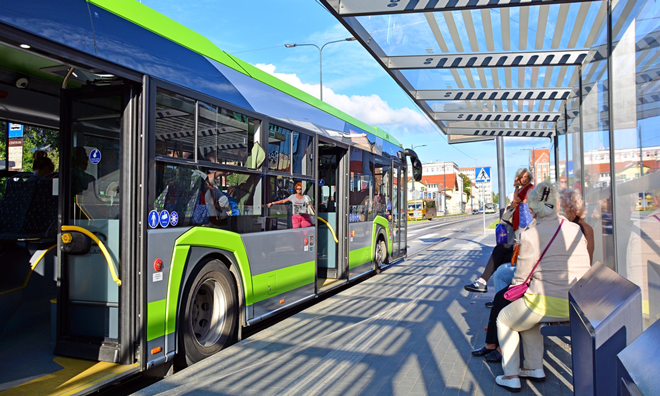More cities in Europe turning to electric buses finds report
- Like
- Digg
- Del
- Tumblr
- VKontakte
- Buffer
- Love This
- Odnoklassniki
- Meneame
- Blogger
- Amazon
- Yahoo Mail
- Gmail
- AOL
- Newsvine
- HackerNews
- Evernote
- MySpace
- Mail.ru
- Viadeo
- Line
- Comments
- Yummly
- SMS
- Viber
- Telegram
- Subscribe
- Skype
- Facebook Messenger
- Kakao
- LiveJournal
- Yammer
- Edgar
- Fintel
- Mix
- Instapaper
- Copy Link
Posted: 10 January 2017 | Intelligent Transport | 4 comments
A new report published by the UITP reveals an increasing number of cities in Europe and around the world are turning to electric buses to help reduce their public transport carbon footprint.


The ZeEUS eBus Report – part of the Zero Emission Urban Bus System project – has found 19 public transport operators and authorities, covering around 25 European cities, have published an e-bus strategy for 2020. According to the UITP, by this date, there should be more than 2,500 electric buses operating in these cities, representing 6 percent of their total fleet of 40,000.
19 public transport operators/authorities in 25 European cities have e-bus strategy for 2020
In addition, the report suggests a further 13 public transport operators and authorities in 18 European cities have an e-bus strategy up to 2025. By this point it is estimated that 6,100 electric buses will be in service, representing 43 percent of their total fleet of 14,000.
The study also includes a market analysis conducted among bus manufacturers. Results demonstrate that a European series production of electric buses should reach full maturity by 2018-2020.
Worldwide e-bus fleet reached circa 173,000 in 2015
The ZeEUS eBus Report also looks at the uptake of the electric bus on a worldwide scale. In 2015 it was estimated that the global e-bus fleet reached approximately 173,000. China leads the way with over 8.3 percent of the global total (170,000 buses) operating in cities including Beijing, Shanghai and Shenzhen. This has been aided by the Chinese government’s ‘new energy buses’ programme.
The findings reveal there are currently 1,300 electric buses delivered or on order in Europe. This includes various types of electrification technologies such as plug-in hybrid buses and trolleybuses with batteries for off-wire operation. The UK holds 18 percent of the total of the bus types listed followed by the Netherlands, Switzerland, Poland and Germany, with around 10 percent each.
The report can be viewed in full here.
Related topics
Alternative Power, Fleet Management & Maintenance
Related modes
Bus & Coach
Related organisations
International Association for Public Transport (UITP)









As involved in Zeus project, I am pleased to see the report.
Why would you want the electric buses to be equipped with the heavy and expensive batteries to be eventually replaced by new ones, wasting the bus fleet time in charging the batteries, consequently needing many more of the these vehicles for serving a bus route. If you design a bus route properly according to the real travel demand, the travel patterns of people do not change for a substantial period of time, needing to change the routing. I do not remember ever changing the route alignment. Consequently, use the well tested trolleybuses, which are extremely powerful, easy to handle and totally environmentally clean. Let me say also, that I am not a politician, or any key-note motivational speaker, I am a practitioner, who participated in trolleybus operations management for several years, and yes, driving them myself in a heavy urban traffic. Take my word for it.
My comments should not require any moderation. I feel deeply offended by your censorship. What are you afraid of? That spells communism.
Hi Rudolf, all comments are moderated by our team to ensure that we don’t publish comments that: – use language that is offensive, inflammatory or provocative, break the law, use this site for party political purposes, include personal information, impersonate or falsely claim to represent a person or an organisation, make any commercial endorsement or promotion of any product, service or publication not relevant to the discussion. I hope you understand why we have to do this. Kind regards – Nick